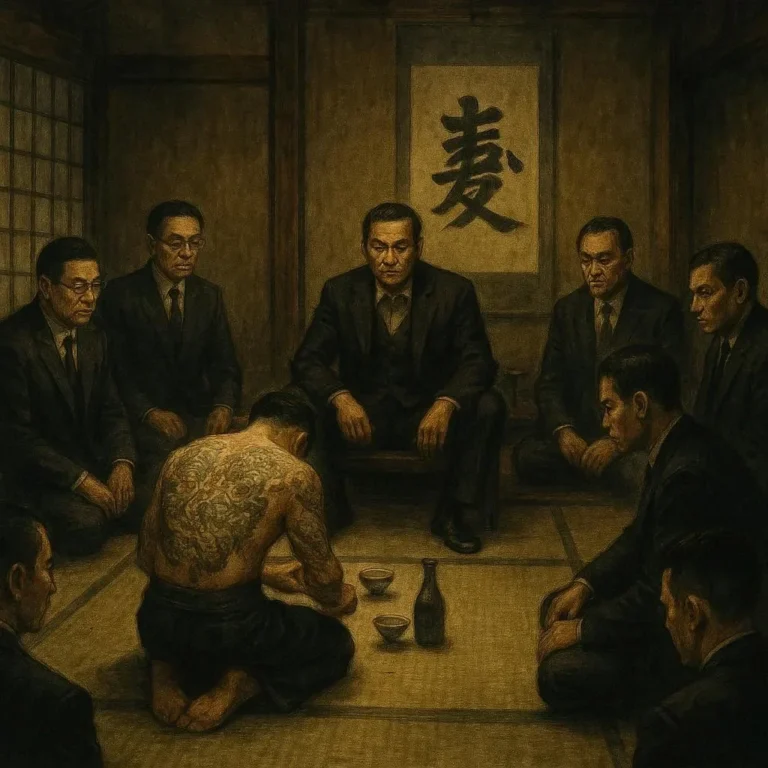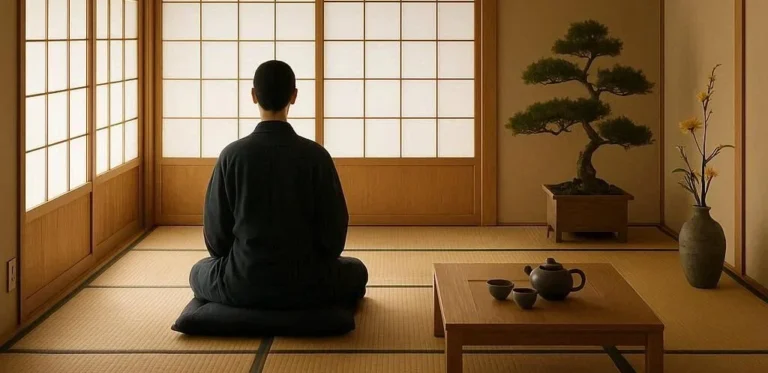506 views Zen Buddhism’s Influence on Japanese Daily Life
Zen Buddhism, one of the most profound and influential schools of Mahayana Buddhism, has deeply shaped the fabric of Japanese culture and daily life. Originating in China as Chan Buddhism, it was introduced to Japan in the 12th century and quickly took root, blending seamlessly with the existing cultural and spiritual practices of the Japanese people. Over centuries, Zen Buddhism has not only influenced religion and philosophy but also permeated art, literature, etiquette, and even the way people approach work and family life. In this blog post, we’ll explore the profound influence of Zen Buddhism on Japanese daily life, highlighting its impact on spirituality, aesthetics, work ethic, and more.
The Spiritual Foundation of Zen Buddhism
At its core, Zen Buddhism is a practice aimed at achieving enlightenment (satori) through meditation (zazen) and the realization of the true nature of reality. Unlike other forms of Buddhism, Zen emphasizes direct experience and intuition over scripture and doctrine. This focus on personal experience and self-realization has made Zen a powerful force in shaping Japanese spirituality.
In Japan, Zen temples, or zendo, serve as centers for spiritual practice, where monks and laypeople alike gather to meditate, study, and engage in rituals. These temples are not just places of worship but also spaces where individuals can cultivate mindfulness, discipline, and inner peace. The concept of mindfulness, central to Zen practice, has become a cornerstone of Japanese daily life, encouraging people to live in the present moment and find meaning in everyday activities.
The Aesthetic of Zen: Simplicity and Minimalism
One of the most visible influences of Zen Buddhism on Japanese daily life is its aesthetic. Zen emphasizes simplicity, minimalism, and the beauty of imperfection. This philosophy has shaped Japanese art, architecture, and design, creating a unique sense of beauty that values functionality and simplicity over ornamentation.
The concept of wabi-sabi, which finds beauty in imperfection and impermanence, is deeply rooted in Zen Buddhism. Wabi-sabi is reflected in traditional Japanese arts such as calligraphy, ceramics, and gardens, where the imperfections and natural wear and tear of objects are considered signs of their history and authenticity. This aesthetic has influenced everything from the design of traditional Japanese homes to the presentation of food in Japanese cuisine.
Zen and the Japanese Work Ethic
Zen Buddhism’s emphasis on discipline, focus, and perseverance has also shaped the Japanese work ethic. In Japan, the concept of “shugyo” (ascetic training) has been adopted in various fields, from business to sports, as a way to cultivate mental and physical discipline. Many Japanese professionals and athletes train with a mindset that reflects Zen principles, seeking to overcome challenges through tireless effort and unwavering focus.
The concept of “kaizen” (continuous improvement) is another Zen-inspired principle that has become a cornerstone of Japanese business culture. Kaizen encourages individuals and organizations to strive for constant improvement, no matter how small, through a mindset of humility, hard work, and attention to detail. This philosophy has driven Japan’s success in industries like manufacturing and technology, where precision and innovation are highly valued.
Zen and Family Life
Zen Buddhism’s influence extends into family life as well, shaping the way people interact with each other and approach relationships. The concept of “wa” (harmony) is central to Zen teachings and emphasizes the importance of maintaining balance and harmony in all aspects of life, including family relationships. Japanese families often prioritize respect, cooperation, and mutual understanding, values that are deeply rooted in Zen philosophy.
The practice of gratitude, or “kanpai,” is another Zen-inspired tradition that plays a significant role in Japanese family life. Before meals, it is common for families to express gratitude for the food they are about to eat, acknowledging the efforts of those who prepared it and the blessings of nature that provided it. This simple act of gratitude reflects the Zen emphasis on mindfulness and appreciation for the present moment.
Zen Buddhism and Japanese Art
Zen Buddhism has had a profound impact on Japanese art, influencing the development of traditional arts such as tea ceremonies, calligraphy, and flower arrangement. These arts are not just forms of entertainment but are deeply spiritual practices that reflect Zen principles like mindfulness, simplicity, and the pursuit of perfection.
The Japanese tea ceremony, or “chanoyu,” is a perfect example of how Zen Buddhism has shaped Japanese art. The ceremony is not just about drinking tea; it is a highly ritualized practice that emphasizes the importance of mindfulness, respect, and harmony with nature. Every detail, from the selection of the tea utensils to the arrangement of the garden, is carefully considered to create an atmosphere of tranquility and spiritual awareness.
Sumi-e, or Japanese ink painting, is another art form deeply influenced by Zen Buddhism. Sumi-e artists use bold brushstrokes and minimalistic compositions to capture the essence of their subjects, reflecting the Zen emphasis on simplicity and the beauty of imperfection. The process of creating sumi-e is itself a meditative practice, requiring the artist to be fully present in the moment and attuned to the natural world.
Zen and Japanese Martial Arts
Zen Buddhism’s influence can also be seen in Japanese martial arts, such as karate, judo, and kyudo (archery). These disciplines are not just physical practices but also spiritual paths that aim to cultivate mental focus, self-discipline, and inner peace. Many martial arts instructors emphasize the importance of developing a strong mental foundation, which is rooted in Zen philosophy.
The concept of “mushin” (no-mind) is central to Zen Buddhist teachings and is often applied in martial arts training. Mushin refers to a state of consciousness where the mind is free from distraction and preconceptions, allowing the practitioner to react intuitively and decisively in the moment. This mental state is cultivated through extensive practice and meditation, reflecting the Zen emphasis on self-realization and direct experience.
Conclusion
Zen Buddhism’s influence on Japanese daily life is profound and far-reaching, shaping everything from spirituality and aesthetics to work ethic and family relationships. Its emphasis on mindfulness, simplicity, and self-discipline has created a unique cultural landscape where individuals seek to find meaning and purpose in everyday activities. As Japan continues to navigate the challenges of modern life, the timeless wisdom of Zen Buddhism remains a guiding force, encouraging people to live with greater awareness, gratitude, and harmony. Whether through the rituals of the tea ceremony, the discipline of martial arts, or the minimalist beauty of traditional art, Zen Buddhism continues to inspire and enrich Japanese daily life in countless ways.






